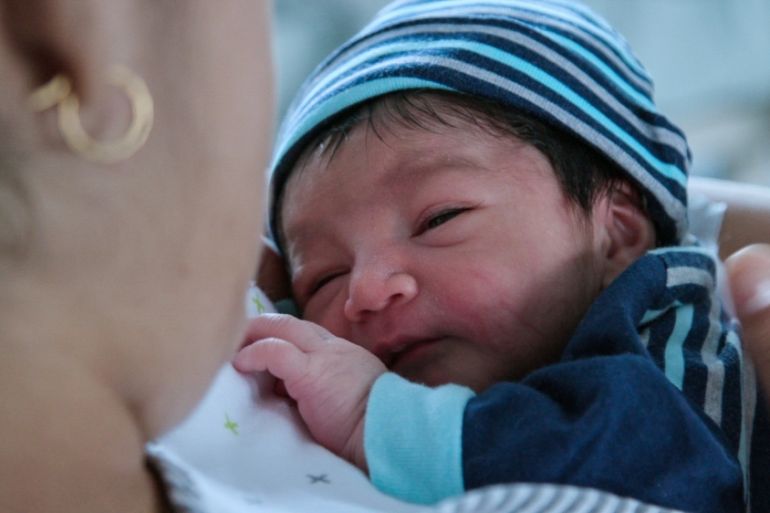
Leaving Venezuela: Building a Life Across the Border
Venezuela’s economic crisis pushes two families with expectant mothers to cross the border into Colombia to give birth.
Editor’s note: This film is no longer available to view online.
Two expectant mothers from Venezuela cross the border into neighbouring Colombia where they hope to give birth safely. Like many others, they left their homeland due to its desperate economic situation and its failing healthcare system.
Keep reading
list of 4 itemsCould a bird flu pandemic spread to humans?
Family says al-Shifa doctor was tortured to death in Israeli prison
Measles outbreak kills at least 42 people in northeast Nigeria
They share their everyday struggles of survival as they try to find a home and prepare to give birth. Their experiences reveal an intimate portrayal of what it is like to leave one’s home country against the backdrop of one of the largest migration crises in Latin American history.
FILMMAKER’S VIEW
By JP Dobrin and Marian Carrasquero
Leaving home is not easy, but staying in Venezuela is not either. Today, more than five million Venezuelans are estimated to have left their country. They are leaving because of a lack of basic healthcare services, food shortages, political repression and widespread crime. For the last several years, Venezuela has had the worst inflation rate in the world.
Caracas, once a thriving cultural capital of Latin America, is now one of the world’s deadliest cities. The number of civilians murdered over the last decade surpasses many war-torn countries – but there is no war in Venezuela. Rampant corruption and mismanagement of public resources, along with political isolation and economic sanctions, have created a hopeless environment for millions of Venezuelans.
When deciding what part of the crisis to focus on for our film, we chose to shed light on the crumbling healthcare system through an intimate, yet universal experience. The lack of longform and first-person storytelling coming out of the Venezuelan refugee crisis led us to cover a story beyond the numbers – through the experience of becoming a mother in the midst of the largest refugee crisis in Latin America.
Few parts of the population have been more gravely affected by the healthcare system collapse than expecting mothers. Giving birth in Venezuela today can be deadly. As a result, thousands of pregnant women are giving birth in neighbouring countries, especially Colombia.
Sara and Stephany, the two main characters in this documentary, leave their homes in Venezuela to look for a safe place to give birth. Both of them temporarily resettle in the Colombian border city of Cucuta, the epicentre of the Venezuelan exodus, and seek medical attention at the overcrowded public hospital Erasmo Meoz. In 2019, 60 percent of childbirths at the hospital were from Venezuelan women.
Our film, Leaving Venezuela, exposes the conditions migrants experience adapting to a new country. Through the lens of these two expecting mothers, we witness the impact this has on their families, with the difficulty, pain, and beauty that accompanies pregnancy. This is a story of loss, told through intimate scenes surrounding the experience of giving birth in a foreign land.
Today, the official border crossing remains closed to prevent the spread COVID-19, but pregnant women keep arriving through unsafe and informal paths known as trochas. Others who depended on pendular migration to work and shop for basic supplies in Colombia, like Stephany, are being severely affected.